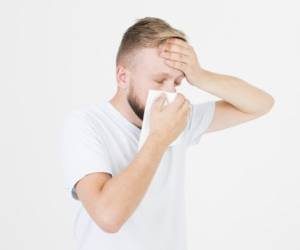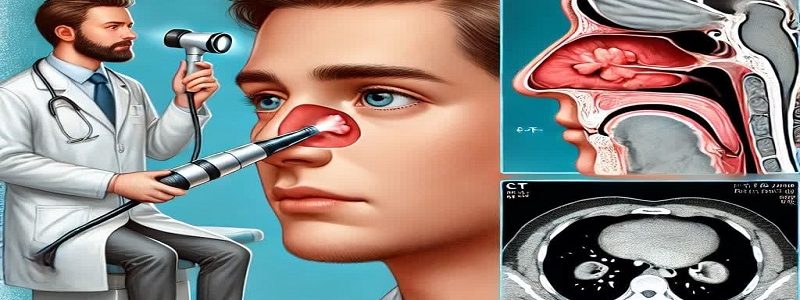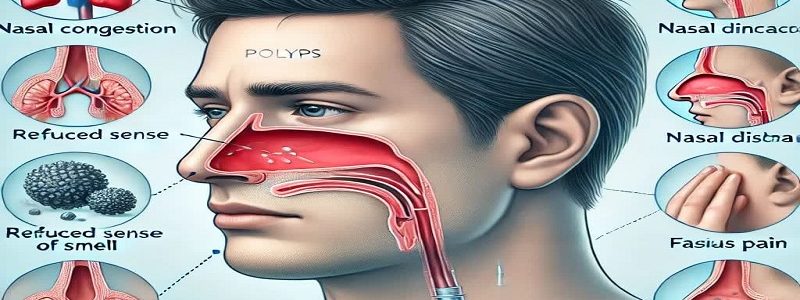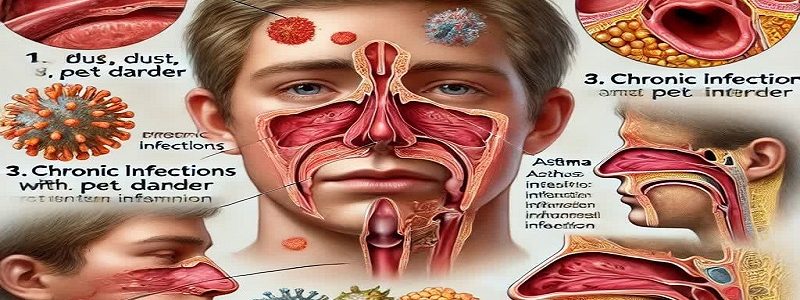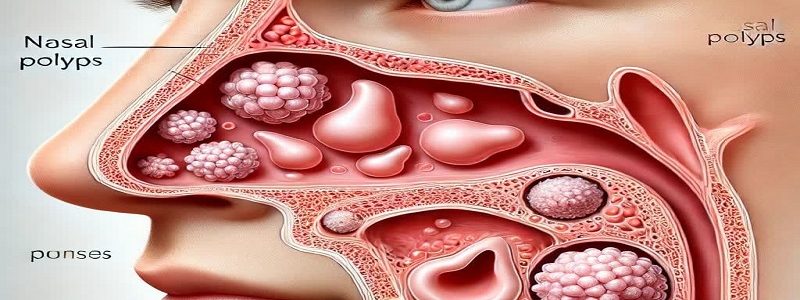Sleep problems, daily activities and social communication
Introduction
Nasal polyps are non -cancerous and soft masses that occur in the nasal mucosa or sinuses. These abnormal growths are often caused by chronic inflammation caused by diseases such as allergies, asthma or sinus infections.. Nasal polyps can cause many problems that have a direct impact on one's quality of life. Some of its most important effects include sleep problems, daily activities, and difficulty in social communication.. In this article from the site of Dr. Behnam Khorrami (Isfahan nose surgeon _ Jaw surgeon of Isfahan), The impact of nasal polyps on the quality of life.
1.. The effect of nasal polyps on sleep
۱.۱. Snoring
One of the main problems of people with Nasal polyps، Breakfast of the respiratory tract Is. This obstruction reduces air flow through the nose and makes breathing difficult. As a result, many patients with severe snoring and even respiratory interruptions in sleep (Sleep Apnea) They become.
۱.۲. Reduce sleep quality and daily fatigue
Due to respiratory problems, people with nasal polyps may not be able to sleep deeply and slowly. Repeated sleeping during the night results in a feeling of fatigue, numbness and reduced energy during the day.. This condition can affect one's mental and physical function.
۱.۳. Increased risk of sleep -related diseases
Low quality of sleep due to nasal obstruction can increase the risk of diseases such as hypertension, heart disease and diabetes.. Lack of sleep can also cause irritability, stress, and depression that have a negative effect on mental health..
2.. Impact on everyday activities
۲.۱. Reducing focus and productivity
Continuous fatigue and oxygen deficiency caused by respiratory problems can reduce concentration, reduce job performance, and reduce productivity in daily activities.
۲.۲. Problems in exercise and physical activity
Difficult breathing in people with nasal polyps makes physical activity such as exercise difficult. This problem can reduce fitness level and increase the likelihood of obesity and metabolic diseases..
۲.۳. Impact on driving and sensitive tasks
Inappropriate sleep and reduced focus can make driving dangerous. People who suffer from a lack of sleep due to nasal problems may have slower reactions and have difficulty doing things that require high accuracy..
۳. Influence on social communication
۳.۱. Impact on social interactions
Nasal polyps may change the voice of the individual and the difficulties in talking. Also, the noise and snoring can be embarrassed and reduced in social environments..
۳.۲. Reduce quality of life in family relationships
People with sleep disorders caused by nasal polyps may have trouble in family relationships. For example, night snoring can cause spouse dissatisfaction and affect the quality of the relationship..
۳.۳. Impact on mental health
Depression, anxiety and stress are other problems caused by reducing sleep quality and social problems caused by nasal polyps.. A feeling of constant fatigue and inability to do everyday activities can reduce happiness and life satisfaction..
4.. Strategies to improve quality of life in people with nose polyps
۴.۱. Use of drug therapies
Anti -inflammatory drugs such as nasal corticosteroids can help reduce inflammation and shrink the polyps. Antihistamines may also be useful in cases where allergies are the cause of polyps..
۴.۲. Surgery and medical methods
In severe cases where drugs are not effective, nasal endoscopy surgery can be a good option. This method is usually low -invasive and can help improve the quality of life..
۴.۳. Lifestyle change
Keep the environment moist.: Using a fumigation machine can help reduce nasal irritation.
Avoid allergens: Avoiding irritating factors such as cigarette smoke, dust and chemicals can reduce symptoms.
Sleep hygiene: Adequate sleep, adjusting sleep hours and using the right pillow to keep air opening can be helpful.
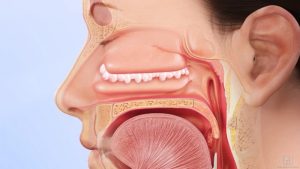
Conclusion
Nasal polyps can have a significant impact on quality of life. Sleep problems, reduce the ability to perform daily activities, and negative impacts on social relationships are among the most important challenges that patients face are the most important challenges..
Useful links:
Isfahan nose surgeon _ Jaw surgeon of Isfahan
Dr. Behnam Khorrami's page in the clinic 24 | Maxillofacial surgeon in Isfahan clinic 24 | Nose surgeon in Isfahan clinic 24
Dr. Behnam Khorrami, nose surgeon in Isfahan at Dr. Af | Maxillofacial surgeon in Isfahan at Dr. Af | Isfahan nose surgeon at Dr. Af








